Parse.ly Onboarding HOWTO
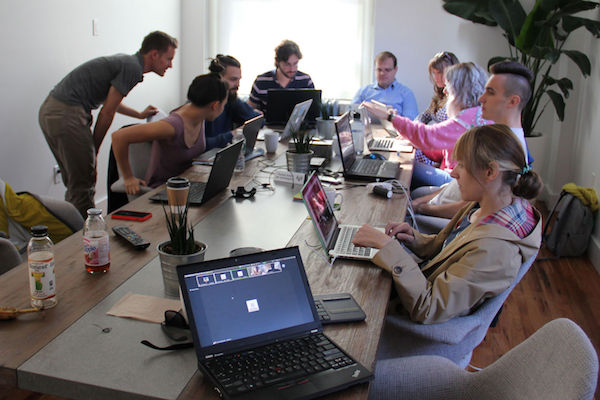
What’s day one at Parse.ly like? The ultimate goal for new hires is to achieve “reliable independence.” Not only do you have your colleagues to support you along the way, but you have access to resources like the one below as an introduction to company philosophy and how we work. The following post reproduces an email sent to new hires on the Parse.ly team, cc’ing their direct managers, on their first day. If you’re interested in learning more about open positions at Parse.ly, check out our jobs page.
Welcome to Parse.ly!
First: congratulations!
You’ve made it onto a great team.
Prepare for an awesome first few months.
You’re going to learn a lot — and do great things.
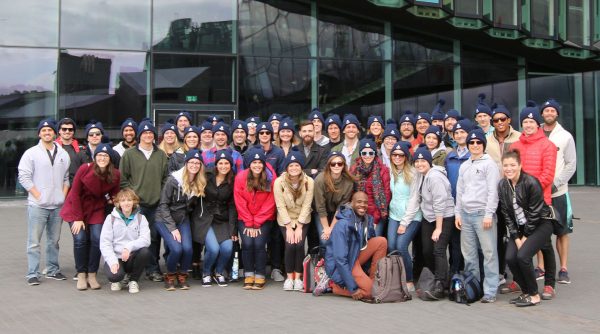
Parse.ly Manifesto
A newcomer should feel lucky to be here, because this won’t be like their past jobs.
Start from first principles with our manfiesto:
- action over experience;
- innovation over tradition;
- results over potential;
- simplicity over intricacy; and
- openness over restraint.
That is, while there is value in the items on the right, we value the items on the left more.
Onboarding Process
Our onboarding process is always evolving. Here is some feedback we’ve heard from past groups:
- lots of 1:1’s are a bit overwhelming
- but, meeting people you’ll work with is critical
- quick win projects help build confidence
- videos and cultural documents are helpful
Our current process learns from this experience.
An Aside on “Process”
We feel very strongly that onboarding must be well structured for you to hit the ground running here. For some evidence on this:
“There is no such thing as ‘no process’. The ‘null process’ is a process that points to nothing. It is an informal, ad-hoc process. This comes about a lot of times because companies are afraid of ‘unnecessary process’.
“However, the ‘null process’ is a subset of ‘bad process’.”
These quotes come from Kate Heddelston, in her PyCon 2015 talk about The Null Process, and subsequent quotes are also drawn from this interview with Fog Creek.
Null Processes are Bad
“… a breeding ground for unspoken expectations, a null process is hard to teach new employees. It makes it hard to train and grow your team. You can’t inspect bias in a null process.
“By not having a process, you already don’t have a great process.
“The first thing to do: use checklists. Start creating collaborative checklists — allow people to add steps, remove steps, or edit steps.”
So, that is to say, if you sense some part of your onboarding feels “null,” please flag it to us!
Onboarding Checklists Are Good
Use the Trello “Onboarding” Board we have created for you, which has a personalized set of cards and checklists.
Most of them are company-generic, but many are very specific for your role.
We encourage you to keep these on background and actually check off items as you go! We also encourage you to stop and ask questions in the “Onboarding” flow in our real-time chat software!
Expectations
Day 1 and Week 1: Your “environment” is set up, your web-based office is configured, and you’re able to collaborate with the team.
You’ve done some initial introductions and started work on a small initial project.
If you have some code experience, you’ve added yourself to the Parsely.com team page. If you don’t have code experience, you’ll get an assist from a product team member to get this done.
You have gotten access to the Parse.ly product and have started to understand how it is used and wired together.
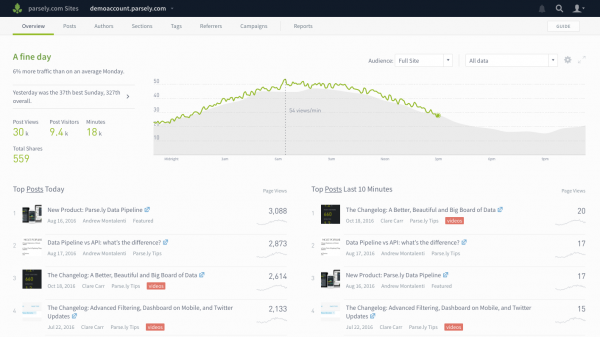
How We Work
You want the first-run experience of Parse.ly to be one of top-notch talent working professionally and collegially together. To that end, here are some tips.
Criticism: Be Positive
“Even a stunningly accurate criticism might not be constructive.”
The thing about critical feedback is that it does two things: First, people resent the criticizer. Second, it doesn’t actually bring about any meaningful or constructive change in behavior, which is the goal of feedback.
The best way to remove criticism is to tell people what you want them to do, instead of telling them what not to do. Remove words like ‘no’ and ‘don’t’, replace them with ‘please’ and ‘do’.
Arguments: Avoid Temptation to Win
“When an individual has a goal of winning an argument, that can be at odds with the overall goal of finding the truth.
“The workplace is an unregulated argument culture, unlike courtrooms which have judges. People will cross ethical boundaries to win. Size, aggression, personal remarks.
“Think about the kind of discourse you want. In brainstorms, defer judgement. When you’re starting to narrow down from a brainstorming session to make a decision is where heated arguments come up. If two people are on opposite sides, then use a regulated debating environment. “
Have a moderator choose a winner (e.g. your direct manager).
Team Debt: Recognize It
The idea behind “team debt” is that our onboarding process only gets “tested” upon new hires, so we need to “always be onboarding”.
“Technical debt is the eventual consequence of bad system design. If you’re shipping features quickly, you accrue technical debt. It can topple your system over time.
“Team debt is a similar concept, except it applies to people. If people aren’t properly on-boarded, trained, and managed, they aren’t operating at capacity. You can end up with a situation where new employees actually reduce overall team productivity.
“What happens when there isn’t systematic on-boarding? If there is no structured onboarding, they have to rely on social structures to get up to speed. So the way they do it without onboarding is to ‘make friends’ with everyone at the company. This will systematically be better for people who are like the existing group.
“Systematic onboarding removes reliance on these poor information and knowledge transfer mechanisms. People who are different from the existing group should have just as much of a chance of being successful as people unlike that group.”
Let us know how to make our onboarding process better! This applies equally to new hires as well as their managers.
Imposter Syndrome: Mind the Gap
Imposter Syndrome: “a term coined in the 1970s by psychologists and researchers to informally describe people who are unable to internalize their accomplishments.”
In a software / tech context, it’s that gloomy feeling, “I have no idea what I’m doing, but yet, everyone else seems so calm and confident.”
Here’s the secret that unravels imposter syndrome:
“Every great developer you know got there by solving problems they were unqualified to solve until they actually did it.”
You’re only an imposter if you’re unwilling to try to solve the big bad problems that sit in front of you. Because, by the time you’re done solving them, you won’t be an imposter any longer.
And there’s the rub: you never were. We are all just figuring it out as we go! That’s the nature of a field where the entire stack shifts every 2-4 years. So it goes.
Goals for Onboarding
Our #1 goal for you is what is known as “Reliable Independence.”
“Someone is able to reliably or independently [build software / deliver results] on your team. For someone senior, that might take 2-4 weeks. For someone junior, it might take 2-4 months.
“Example first goal: add yourself to the company’s website team page.
“Example second goal: deploy something trivial and meaningless to a hidden area in production application.
“Now, you can contribute!”
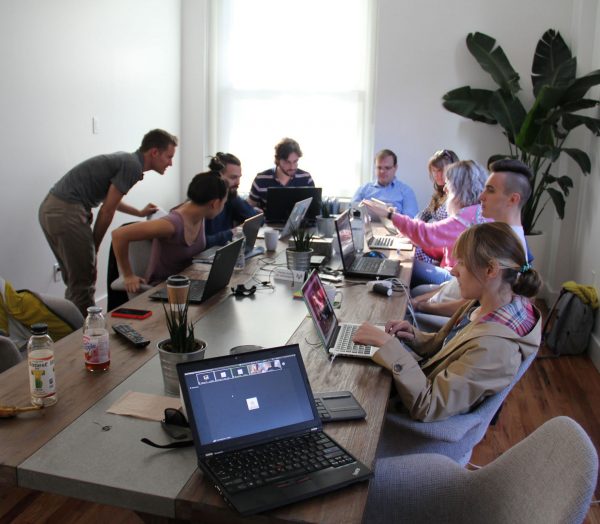
The way I see it, there are three categories for onboarding: (a) technical knowledge; (b) company and code structure — the internal tools we use and our process for building stuff; (c) personal development — confidence, independent research, troubleshooting problems independently, judgment on architecture and style and deliverables. Each of those thirds is important.
If you are a developer, your next big goal after these first few should be to build a feature that is well-defined, where you can complete it to satisfaction, but also take an opportunity to deliver something above-and-beyond the spec, as a way of ‘playing’ with the spec and exceeding its expectations. If you are in a non-technical role, you should be working on your first long-term high-impact project, and seeing results shipped to customers and your manager on the regular.
This builds confidence — a successful onboarding is all about having you build confidence and continue to deliver above expectations!
First Project
I believe specific is better than vague, challenging is better than mundane.
We will avoid the temptation to conflate “onboarding” with “getting to know the company”. The latter will happen more naturally than we might think, but onboarding is about you proving yourself capable to thrive and grow, and quickly.
To whatever extent you can be given specific, challenging projects from the get-go, then prove yourself by overdelivering and exhibiting virtuoso, the sooner we can be confident that this will be a great relationship long-term!
If this doesn’t sound like your first project, let us know — and we’ll fix it!
I also recognize that new hires who are truly great will judge the company by how easy it was to get from “I barely know what I’m doing” to “I’m delivering something valuable and learning a ton.” So, if you feel a gap here, flag it to us!
Continuous Feedback
Please reply off-thread to this email with your onboarding experience thus far, what you’ve done, what you plan to do in the next 2 weeks, and what your 30- and 60-day goals for your first project. Feel free to wait a few days (or even a couple weeks) before replying to this thread, if you need some time to get your feet wet.
Also, please let me know what technology or tool you don’t know, but feel you need to learn well, in order to be productive in the next 90 days. We will make sure you get training for that immediately.
Welcome to the team!
Once again, we are glad to have you! You are going to do great things here. Onward!
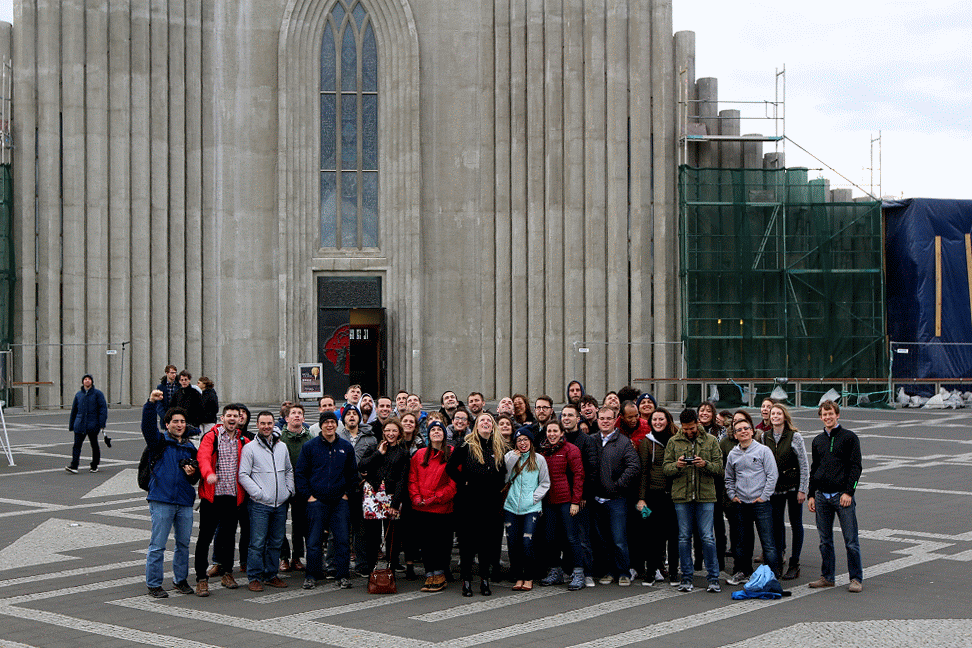
Want to join a team that does onboarding this way? Check out our our jobs page and reach out!